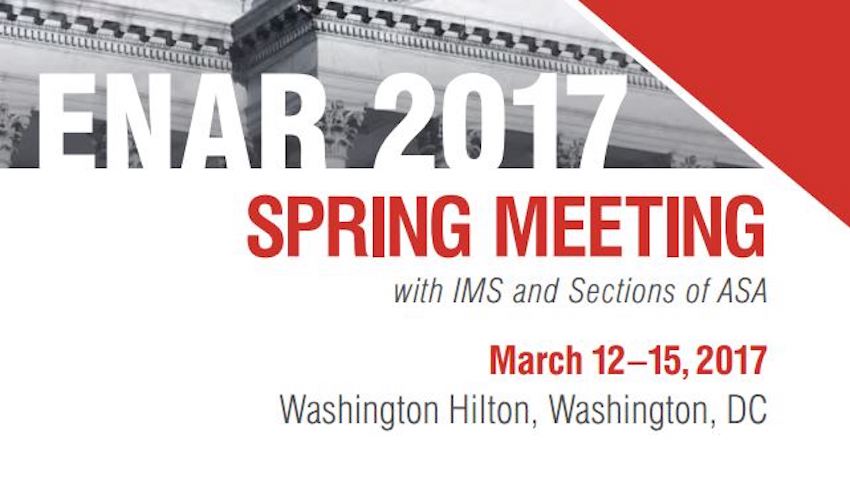
The annual meeting of the Eastern North American Region (ENAR) of the International Biometric Society (IBS) is the largest annual meeting of biostatisticians in North America. Three HCP faculty were invited to speak on data science.
Sharon-Lise Normand presented a tutorial on "Statistical Issues in Comparative Effectiveness Research" and gave an invited talk entitled, "Mitigating Confounding Violations in Bayesian Causal Inference using High Dimensional Data" with research assistant Jacob Spertus. The tutorial provided an overview of the types of research questions addressed by comparative effectiveness research, reviewed the main statistical methodology currently utilized, and highlighted areas where new methodology is required.
Sherri Rose gave an invited talk on her paper "Computational Health Economics for Identification of Unprofitable Health Care Enrollees," which is joint work with Tim Layton and PhD student Savannah Bergquist. Their findings demonstrate that insurers could use prescription drug claims to find unprofitable enrollees even after risk adjustment, and subsequently design their drug formularies to avoid these types of enrollees. This is particularly concerning following the April HHS memorandum indicating CMS will no longer review the prescription drug coverage provided by health plans in the insurance Marketplaces created by the Affordable Care Act.
Laura Hatfield presented an invited talk on "Utility Maximizing Models of Medicare Supplemental Insurance Choices" with PhD student Jeannie Biniek, Michael Chernew, and Thomas McGuire. This work has received media attention, in particular from Forbes. Hatfield is an ENAR at-large member and also chaired an invited session on Health Policy Data Science during the conference, which was organized by Rose. Hatfield organized the Diverse Evidence and Perspectives in Health Care Decisions invited session, which was chaired by Seidman fellow Megan Schuler.
HCP post-doctoral fellow Chenyang Gu also presented on recent work in two talks titled "Combining Item Response Theory with Multiple Imputation to Equate Health Assessment Questionnaires" and "Development of a Common Patient Assessment Scale Across the Continuum of Care: A Nested Multiple Imputation Approach."
The meeting brings together researchers and practitioners from academia, industry and government, connected through a common interest in biometry. The scientific program covers a wide range of topics of great interest to researchers and practitioners, including data sciences (big data), genomics, clinical trials, neuroimaging, biomarkers, health policy, electronic health records, ecology, and epidemiology.
The annual meeting also offers opportunities to learn state-of-the-art research methods and software, to hear about interesting and impactful applications to many areas in the life sciences, to connect job seekers with employers, to expand professional networks, and to reconnect with colleagues.
Enjoy content like this? Sign up for our newsletter and follow HCP on Twitter.